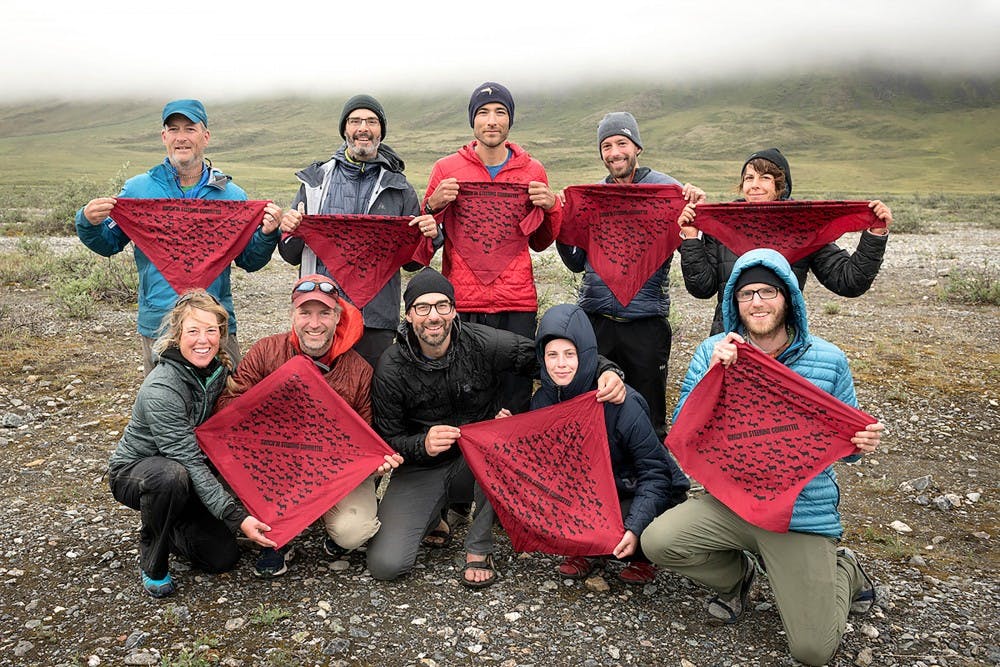Nestled against the banks of the Yukon River is a little town that looks straight out of a Wild West film. Dawson City, Yukon, is home to dilapidated old buildings, dirt roads and, for four years, ASU student Krista Davis.
Davis said that Dawson City in far north Canada is a town defined by its many contradictions. While the town is recognized for its significant indigenous population, it is also known for its gold rush history that displaced many people in those communities.
For her thesis exhibition, Krista Davis, a graduate art student in the School of Art, said she aims to share the story of the animals and people she crossed paths with during her time living in northern Canada. Davis’ thesis exhibition will run April 25 to May 4 at the ASU Step Gallery at Grant Street Studios.
Davis’ thesis exhibition, Earthly Commitments to the Land and its Ghosts, is a storytelling project, expressed through a series of short videos that blends film, sculpture and other art forms to show the story of the Porcupine caribou, whose annual migration takes them through the territory.
The Porcupine caribou, Davis said, are culturally, politically and environmentally bound to northern communities like Dawson City and have become an important facet to the communities that live there, which is a concept Davis explores at length in her exhibition.
Adriene Jenik, a professor in the School of Art and one of the co-chairs of Davis’ thesis, said the thesis seeks to shift people's perceptions of existing separately toward how they exist as part of a larger system.
The project comes at a time when environmental conservation policies are being heavily debated, Jenik said, including those that impact the Yukon.
“We are a bit backed into a corner right now in terms of what’s happening environmentally,” she said.
The Porcupine caribou, whose calving grounds on the north slope of the Arctic National Wildlife Refuge, have come under increased threat in recent years.
When the Trump Administration signed the Tax Cuts and Jobs Act in 2017, they agreed to open the Arctic National Wildlife Refuge to oil exploration and drilling. Prior to the action, the lands were protected because they overlap with where the Porcupine caribou, who have the largest land mammal migration in the world, birth their offspring every year.
In response to the controversy surrounding the decision to open the Arctic National Wildlife Refuge for oil exploration and drilling, Davis said there are many sides to the issue. Several groups are in favor of oil exploration as it opens the community to opportunities for job growth, while others feel their way of life is being threatened.
“This land’s protected status has been a point of contention in the U.S. government since it was protected in the late (1970s),” Davis said.
Jenik said the decision to open the lands to exploration and drilling is an "outrage" and "a betrayal of our legacy and the Gwich’in people who live off those lands."
The Gwich’in, who are separated by the U.S.-Canada border, live along the Porcupine caribou’s migratory route. The Gwich’in have come to be known as the Caribou People for their contributions to the population.
“They’ve been doing a lot of really incredible work to push back on this decision and to keep the land protected,” Davis said.
Davis said her thesis allowed her to explore the unique contradiction present in Dawson City, where the Klondike Gold Rush led to the displacement of indigenous communities who lived there.
The gold rush brought an influx of government regulations that tightened border laws in the town, forcing people to choose whether they would live on the Canada side or the U.S. side and permanently altering those people's lives.
This history inspired Davis to explore how the town balances its celebration of its frontier spirit, which is at odds with the historical trauma inflicted on indigenous tribes, and its attempts to rebuild and protect those histories.
There is a constant struggle to get people, especially those farther south, to invest in the well being of Arctic communities, she said.
“One of the things that I’ve really been thinking about is how to make people care,” Davis said.
Davis said that the lack of infrastructure doesn’t justify the degradation of lands and that a land’s inherent value is not in its ability to be utilized for commercial growth.
Ronald Broglio, an English professor in The College of Liberal Arts and Sciences, acted as an adviser to Davis’ project because of his research in environmental humanities.
Broglio said one of the things he and Davis were really focused on was what philosopher Donna J. Haraway calls "staying with the trouble."
"Rather than try to find it an easy solution or a solution that works for one group but not another, is to really embed yourself in the layered complexity of that particular place in the Yukon,” Broglio said.
With so many players involved and so many issues at stake, Davis spent a lot of time sitting with groups and listening to their concerns. Adequately expressing these concerns so each group felt heard was critical, Broglio said.
Broglio said he believes the issues explored can’t be solved by a single discipline or skill set.
“The future is interdisciplinary,” Broglio said.
Reach the reporter at snalcan1@asu.edu or follow @SarahAlcantar on Twitter.
Like The State Press on Facebook and follow @statepress on Twitter.




